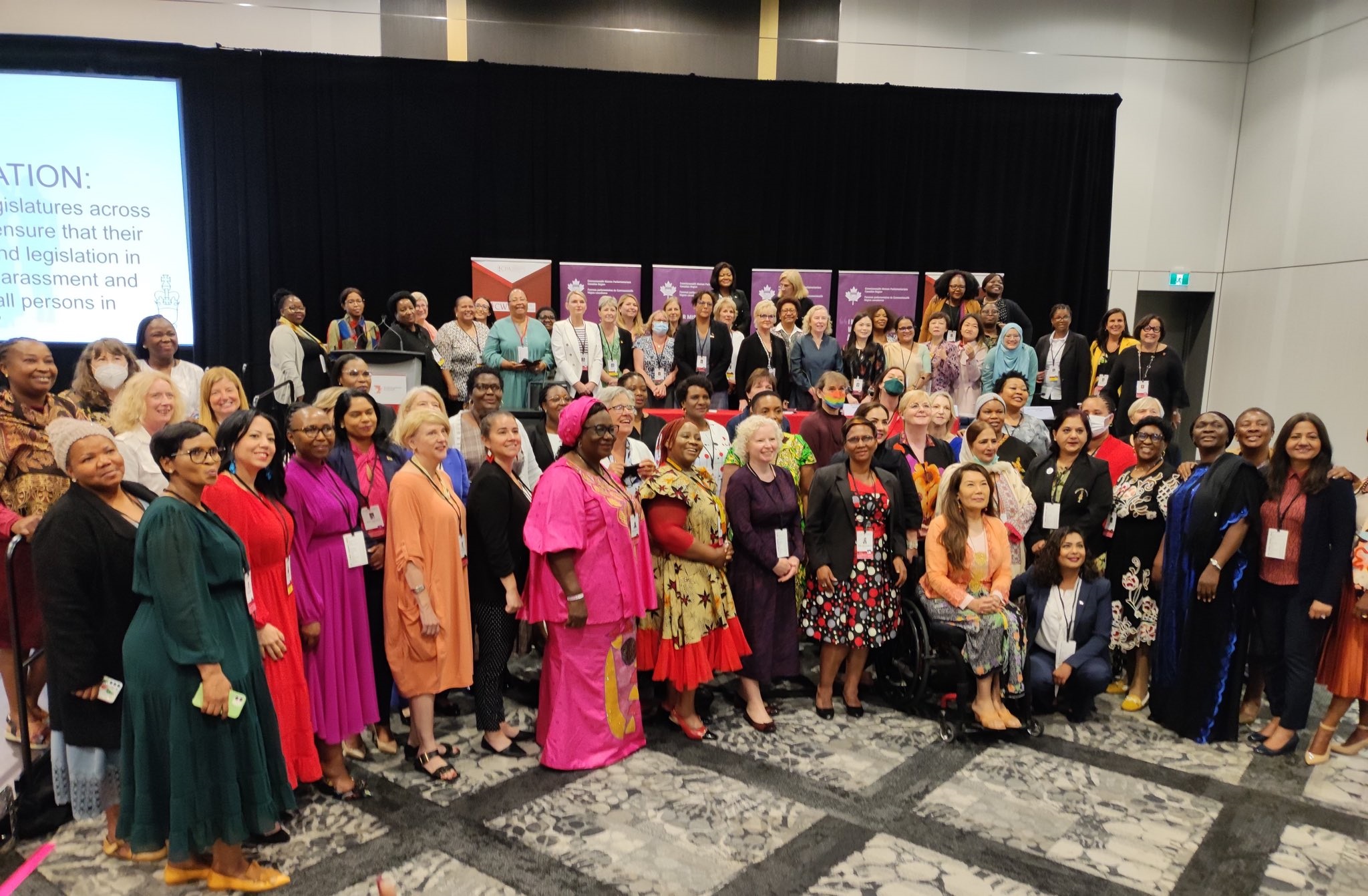
4 minute read
LOOKING AHEAD TO THE 66th COMMONWEALTH PARLIAMENTARY CONFERENCE IN GHANA: THE GENDER QUOTA PERSPECTIVE
Article 1 (1) and (2) of our dear Association state her aims and objectives as the promotion of constitutional, legislative, economic, social and cultural aspects of parliamentary democracy, with particular reference to the Commonwealth countries.
Over the years, the CPA has consistently upheld these ideals through parliamentary exchange visits, publications, information dissemination, conferences, seminars, workshops, meetings and study groups. One of such activities is the annual CPA Conference, this year the 66th Commonwealth Parliamentary Conference (CPC), for which we are all gathered in Ghana.
As the newly elected Chairperson of the Commonwealth Women Parliamentarians (CWP), the onus is on me to provide directional leadership and strategic focus aimed at maximising the influence of women across the Association. It is also about championing equal gender representation across climes in line with the CWP’s mission of promoting the representation of women in CPA Branches and women’s full and equal participation in all political and parliamentary leadership positions at all levels.
You will recall that at the 65th CPC, which took place in August 2022 in Halifax, Canada, various speakers and presenters shared ideas on how to effectively combat all forms of abuse and harassment in Parliaments, promote gender-sensitivity, diversity, inter-sectionalism, financial empowerment and synergize to positively influence one another. The new CWP Gender-Sensitising Parliaments Field Guide was also launched.
Also in December last year, Commonwealth Parliamentarians from 12 different jurisdictions came together in Canberra, Australia for a CWP Workshop on ‘Champions for Gender Equality’. Part of the take away from that workshop is that women should act in synergy and as catalysts to empower other women to positions of prominence in political leadership. Other pertinent issues such as unequal access to resources, gender equality, discriminatory practices and the development of gender parliamentary caucuses for the promotion of a gender sensitive Parliament were also discussed.
Over time, these series of intervention programs have been part of the CWP’s policies, but there seems to be no serious paradigm shift as gender inequality, discrimination and insensitivity to the plight of women and the girl child still remains a recurring decimal globally.
To date, women are still faced with numerous challenges ranging from violence, harassment and intimidation during election campaigns, gender inequality, inability to secure election campaign funding, difficulty in securing the support and acceptance of political parties and unwholesome cultural practices to balancing private, family and political life.
The latest statistics show the performance of countries based on the monthly ranking of the numbers of women in Parliament globally (as at 1st July 2023) and they confirm that out of 190 countries, apart from Rwanda, New Zealand, South Africa, Namibia and Mozambique, most Commonwealth countries are not among the first twenty places. Statistics also show that globally, only 24.9% of Members of Parliament are women while the remaining 75.1% are men.
These statistics clearly show that a lot more work needs to be done to ensure the inclusion of women in governance and leadership positions, and in key decision making. We therefore need to look inward for gaps that have been left unfilled, we need a further scrutiny of our plans, actions and inactions, and we need to interrogate further our processes and procedures. This calls for serious brainstorming.
The 66th CPC in Ghana provides another opportunity for a stock take of our achievements, challenges and prospects. We must deepen our understanding of the CWP guidelines and checklist for gender-sensitizing Parliaments, not just as a mantra or a slogan, but in actual practice and bring to the fore the challenges faced in the process.
We must put in place an action plan with timelines on set targets. We must identify the needed inputs that can generate the desired outputs and outcomes we seek. Our outcomes must be measurable and there must be a feedback mechanism to measure ongoing performance with a view to taking corrective action where necessary to ensure conformance/conformity.
There must also be synergy between our local pressure group champions and our various regional and international bodies aimed at information sharing, reinforcement and backup where necessary.
This is doable; we have the capacity and the capability to make it happen so we can change our present narratives and move on to other bigger issues.
I wish you all a successful deliberation as we meet again at the 66th CPC in Ghana.
The CWP Chairperson's article 'Progress on the 10-year anniversary of the Commonwealth Charter' appeared in The Parliamentarian 2023 Issue One (page 6).










